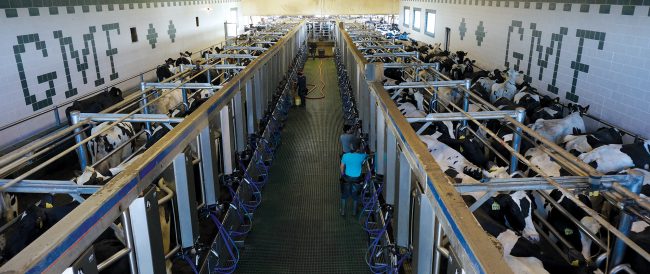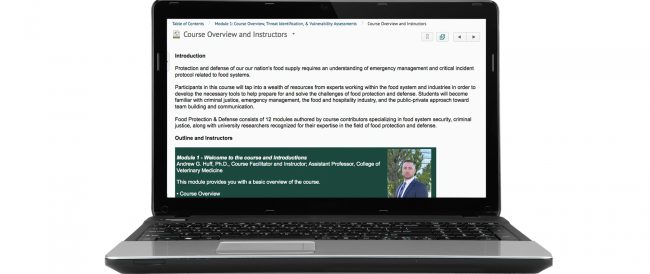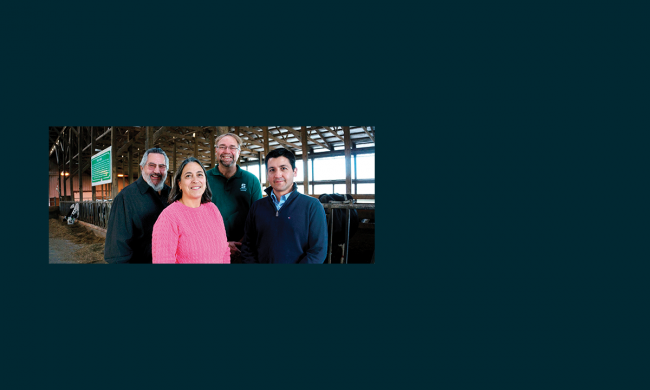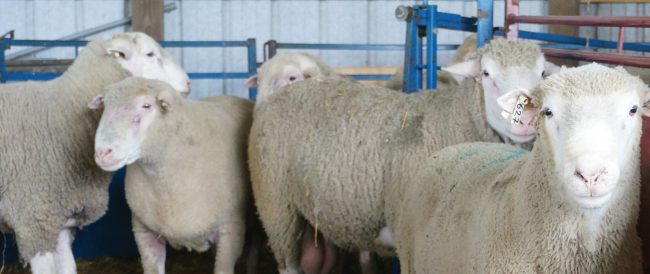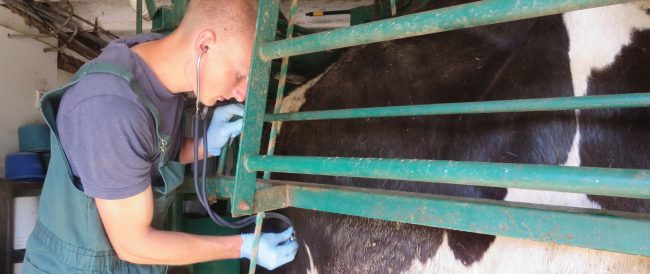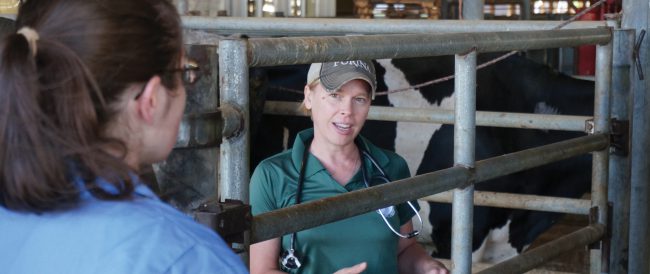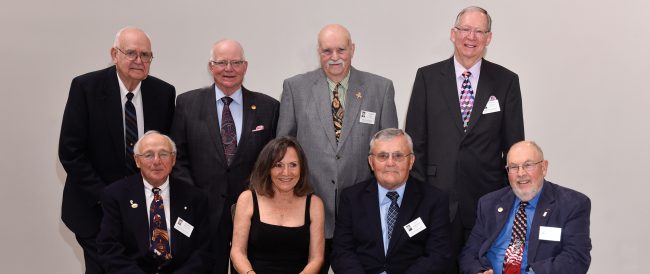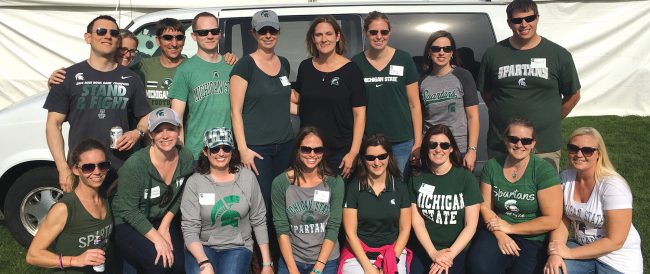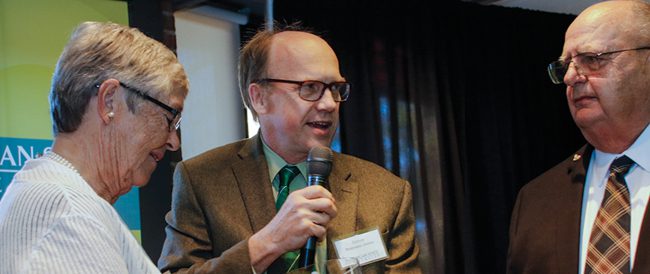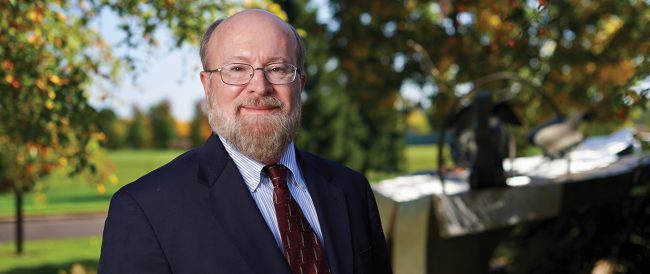 Read More
Read More
This Spartan is One of a Kind.

By Esther Haviland
Dr. Scott Kramer, MSU College of Veterinary Medicine alumnus (’16), is a dedicated and successful veterinarian. He holds an MBA, two MS degrees, a PhD, and a DVM—all from MSU.
Kramer was already immersed in the College as a DVM student when he decided to pursue the Online MS in Food Safety (MSFS) degree. This would complement his veterinary degree and support his goal of becoming a swine veterinarian. The MSFS degree allowed Kramer to explore his interest and understanding of food safety. The structure of the online degree also allowed him the freedom to choose the classes that supported his ambitions, while the core classes were a new learning experience in food safety.
The online master’s degree consists of seven required courses including an individualized applied project. “I really enjoyed the applied project, as I was able to create, implement, and follow a research protocol which was specifically tailored to my career objectives and focused on both swine medicine and pork safety,” says Kramer.
His applied project was titled Detection of Streptococcus suis in Neonatal Piglets, and focused on the emerging zoonotic pathogen Streptococcus suis in pigs. The MSFS degree is designed as a non-thesis professional science master’s program. “As most MSFS students are working full time, the applied projects tend to focus on issues or problems students are confronting in their daily work,” says MSFS Director Dr. Melinda Wilkins.
As a DVM student, Kramer worked with Veterinarians Without Borders and the International Livestock Research Institute in Kampala, Uganda. During this DVM study abroad program, he co-taught and created a manual for an associated practical course titled A Training Course for Small Holder Pork Producers and Butchers to Enhance Hygiene, Carcass Handling, and Biosecurity Practices. In conjunction with the study abroad program, Kramer took part in an associated project where he created fact sheets to help producers, traders, and butchers to recognize African swine fever, improve biosecurity, and to maintain pig health.
Recently, Kramer accepted a position with the US Department of Agriculture Food Safety and Inspection Service as a supervisory veterinary medical officer at a pork processing plant. He is responsible for ensuring humane treatment of livestock at slaughter and making sure the product is safe for human consumption by enforcing federal meat inspection regulations. “The knowledge that I gained in the MSFS [degree] will always be the foundation of any accomplishments that I make in relation to a career in food safety,” says Kramer.
Previously, Kramer held a position at HyLife Ltd. as a swine veterinarian in Manitoba, Canada. His duties included maintaining and improving herd health and welfare, serving as a validator for the Canadian Pork Quality Assurance program, and working as a Canadian Food Inspection Agency accredited veterinarian, which gave him the responsibility to ensure the health of pigs exported to the United States.
The correlation between food safety and veterinary medicine is prevalent in Kramer’s career. “Professionally, I am beholden to the tenets of both the veterinary oath, as well as the oath of public service, and continue to rely upon the breadth of my knowledge and experiences across swine production, research, medicine, and pork safety as I navigate through my new career,” says Kramer. “I have been very fortunate to have been able to successfully follow all of my aspirations to date, and remain confident that the future has so much more to offer.”
Many students in the MSFS degree program are similar to Kramer—they want to receive flexible graduate-level education. With the MSFS degree being fully online, students have the option to complete their courses in the order and time frame that meets their needs. Every year since the establishment of the degree more than 10 years ago, there has been steady growth in admissions. The MSFS degree program boasts 258 current students and 324 alumni who represent more than 350 organizations in industry and government across the globe.
The MSU Online Food Safety Program, which offers the online MSFS degree, strives to educate professionals in an effort to make global food systems as safe as possible and continue to support individuals as they advance in their food safety-related careers. This is accomplished through innovative teaching that incorporates technology and real-world application to meet the needs of the working professional.



